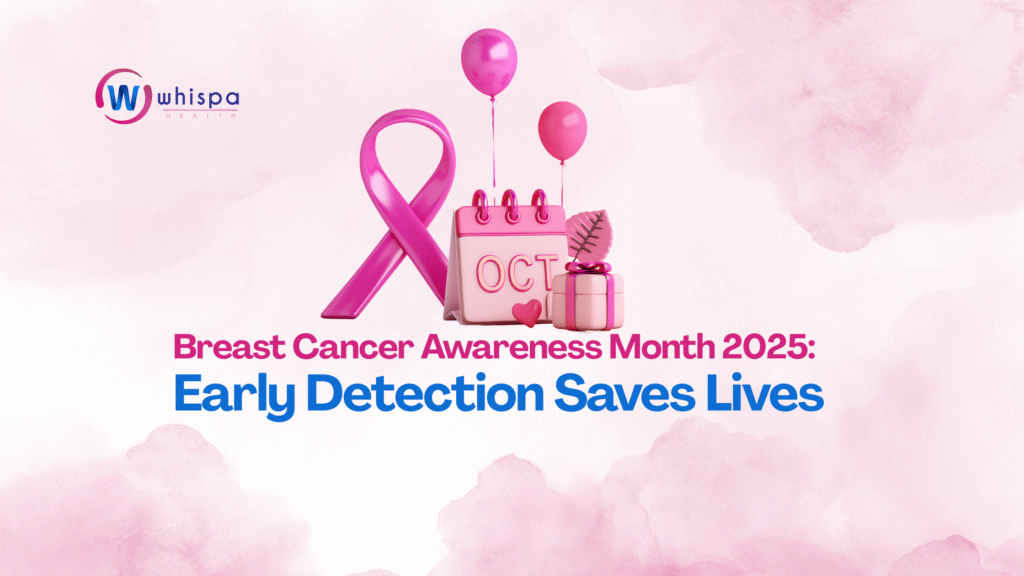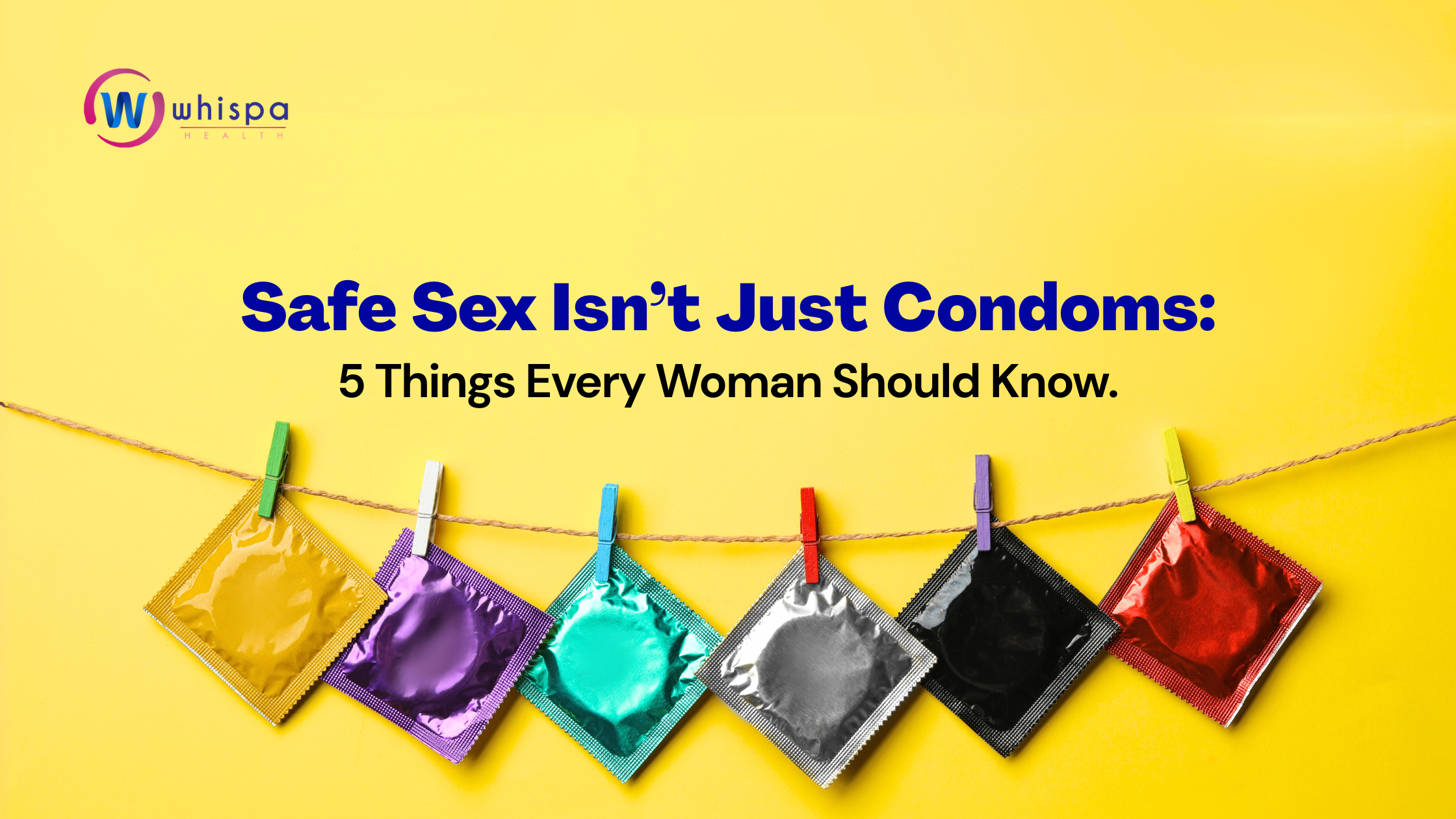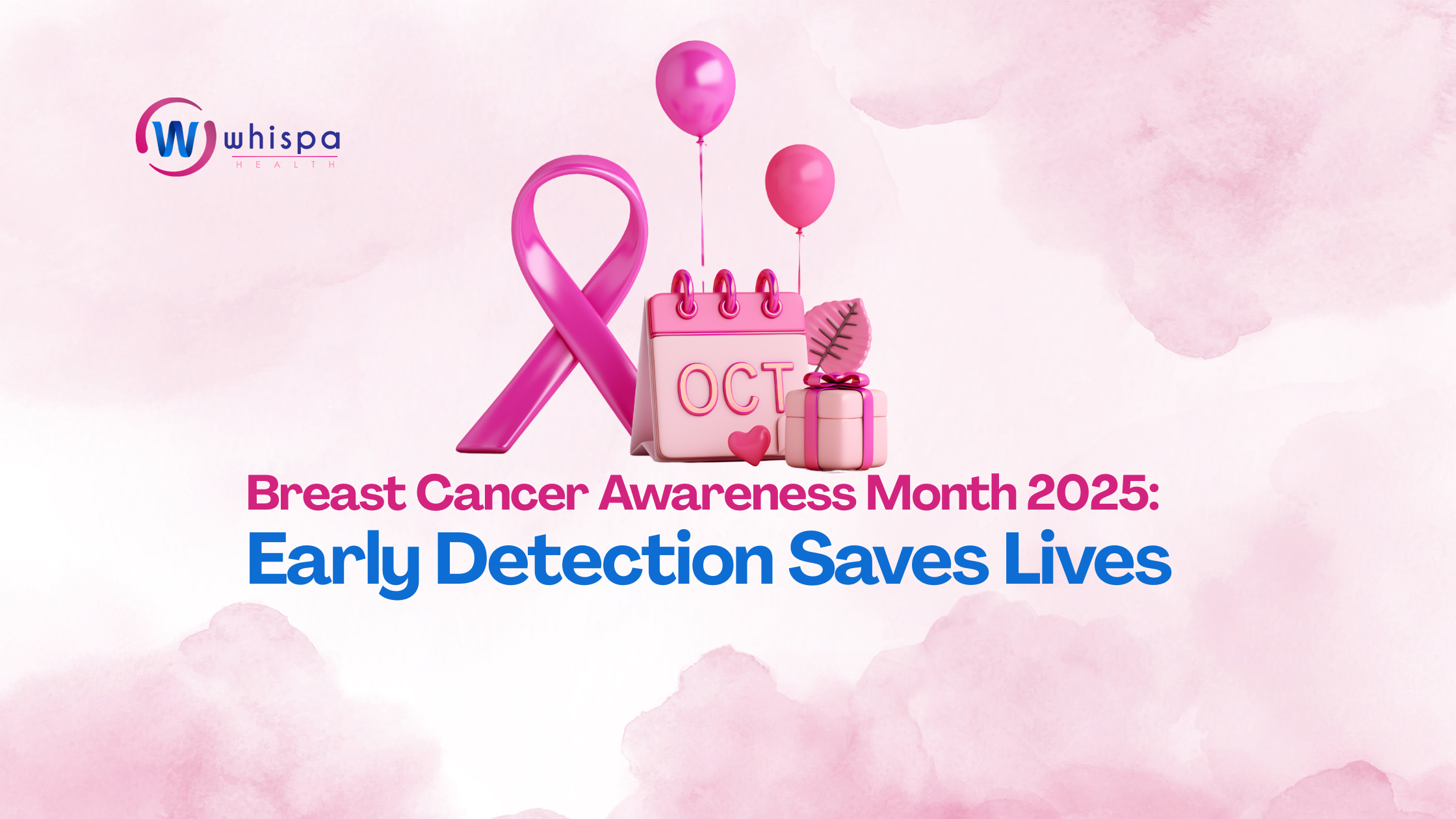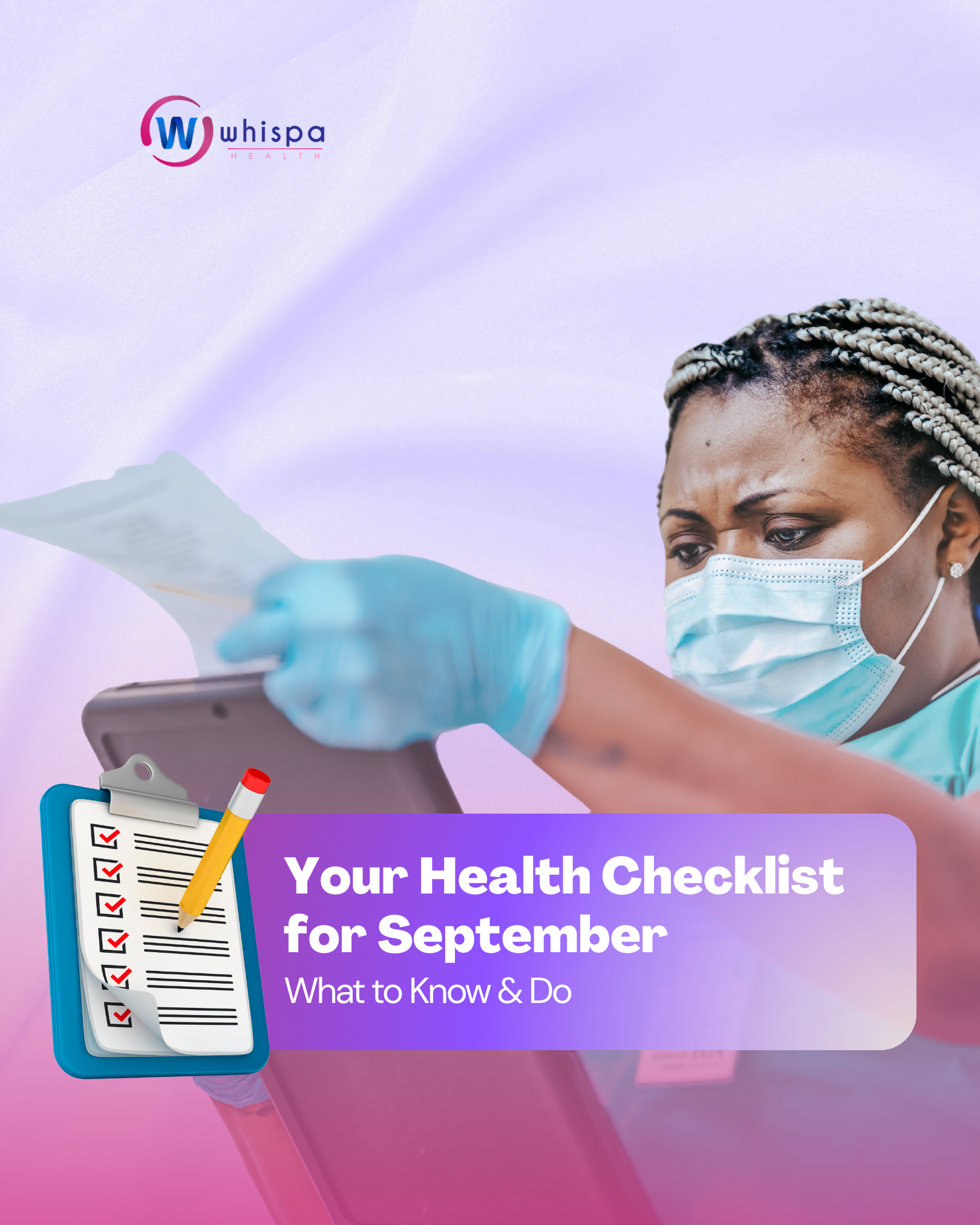Every October, the world turns pink to recognize Breast Cancer Awareness Month, a global campaign dedicated to raising awareness, encouraging screening, and supporting those affected by breast cancer.
At Whispa, we believe that talking about breast health should be as normal as talking about any other part of your body. Because early detection doesn’t just save lives, it saves futures, families, and dreams.
If you’ve ever wondered how to check for symptoms, when to get screened, or what support is available, this guide is for you.
What Is Breast Cancer?
Breast cancer happens when abnormal cells in the breast grow uncontrollably, forming a lump or mass. It’s the most common cancer among women worldwide, but it can also affect men.
While it can sound scary, the truth is that breast cancer is highly treatable when detected early. That’s why awareness and regular screening are so important; they help catch it before it spreads.
Common Symptoms You Shouldn’t Ignore
Breast cancer doesn’t always cause pain or discomfort, especially at first. That’s why knowing what to look out for is key.
Here are some early warning signs to pay attention to:
- A new lump or thickening in your breast or underarm
- Changes in breast size, shape, or contour
- Dimpling, puckering, or wrinkling of breast skin
- Nipple inversion or discharge (other than breast milk)
- Redness, scaling, or flaking of the nipple or breast area
If you notice any of these symptoms, don’t panic, but don’t delay. Schedule a consultation with a healthcare professional as soon as possible.
Talk to a Whispa doctor today for guidance and next steps.
Screening & Early Detection: When to Start
Screening helps detect cancer before symptoms appear, increasing the chance of successful treatment.
Here’s what we recommend:
- Ages 20–39: Perform regular self-breast exams and schedule clinical breast exams every 1–3 years.
- Ages 40–49: Discuss the right time to start mammograms with your doctor.
- Ages 50–74: Get a mammogram every 1–2 years.
- High-risk individuals (family history, BRCA1/2 gene, etc.) should begin screening earlier.
Regular self-checks help you detect changes early. Look for lumps, swelling, or nipple changes, and feel your breasts in circular motions. Learn how to do a proper self-exam here.
Whispa can also connect you with trusted healthcare providers and help you understand which screening options are best for you.
How Whispa Supports Breast Health
At Whispa, our mission is to make healthcare simple, safe, and accessible for everyone, especially when it comes to sensitive topics like reproductive and breast health.
Here’s how we can support you this Breast Cancer Awareness Month:
- Confidential Consultations: Speak privately with licensed doctors from your phone or at one of our partner hospitals closest to you.
- Referrals for Screening: Get connected to trusted diagnostic centers for breast scans.
We’re here to help you prioritize prevention, without stigma or fear. Download the Whispa app today to take charge of your health.
How You Can Reduce Your Risk
While no one can completely prevent breast cancer, healthy habits can help reduce your risk:
- Maintain a healthy weight and stay active
- Eat plenty of fruits, vegetables, and whole foods
- Limit alcohol intake
- Avoid smoking
- Breastfeeding, if possible, offers some protection
- Know your family history and get screened early if at risk
Remember: prevention starts with awareness, and awareness starts with you.
Show Support This October
Whether it’s wearing a pink ribbon, sharing educational content, or encouraging loved ones to get screened, your voice can make a difference. Together, we can break the silence and empower more people to take their health seriously.
At Whispa, we’re proud to stand with millions around the world in the fight against breast cancer, one conversation, one consultation, and one life at a time.




